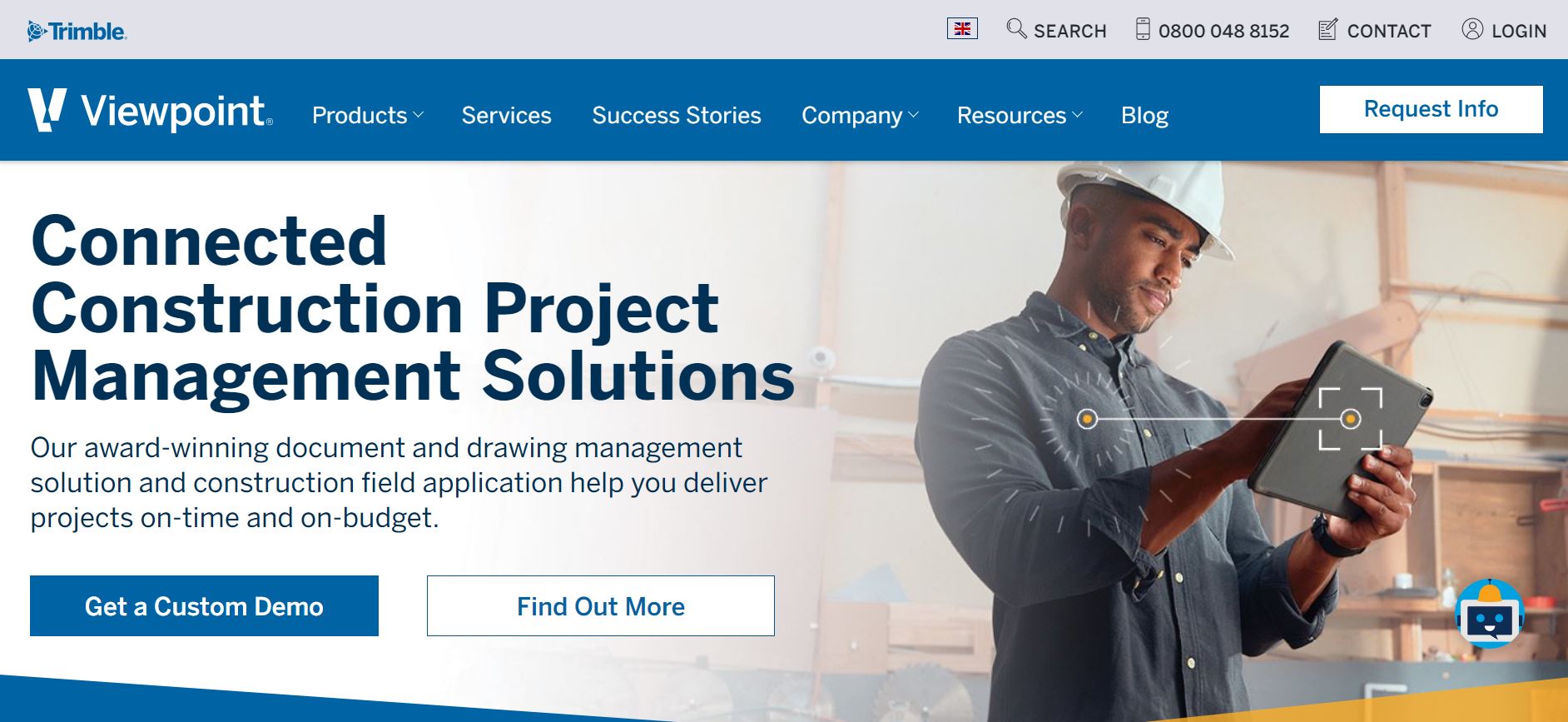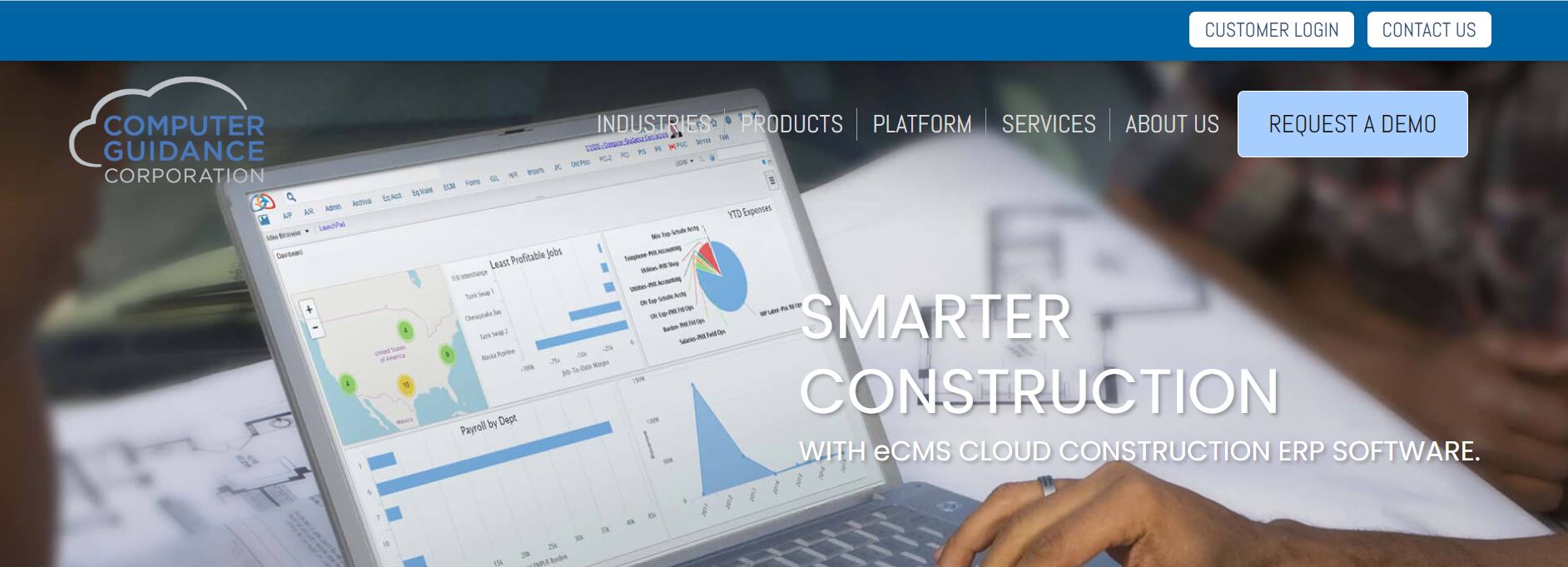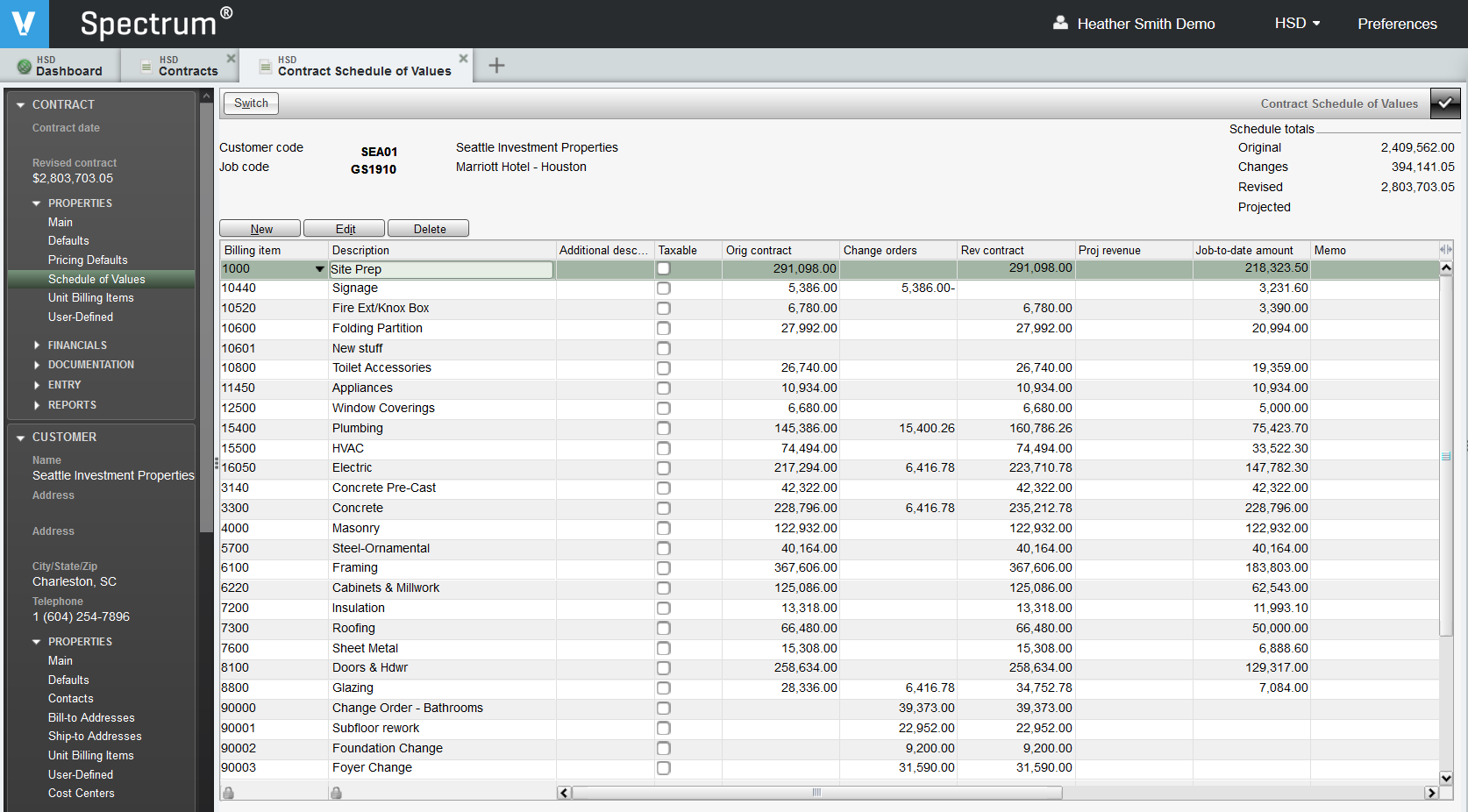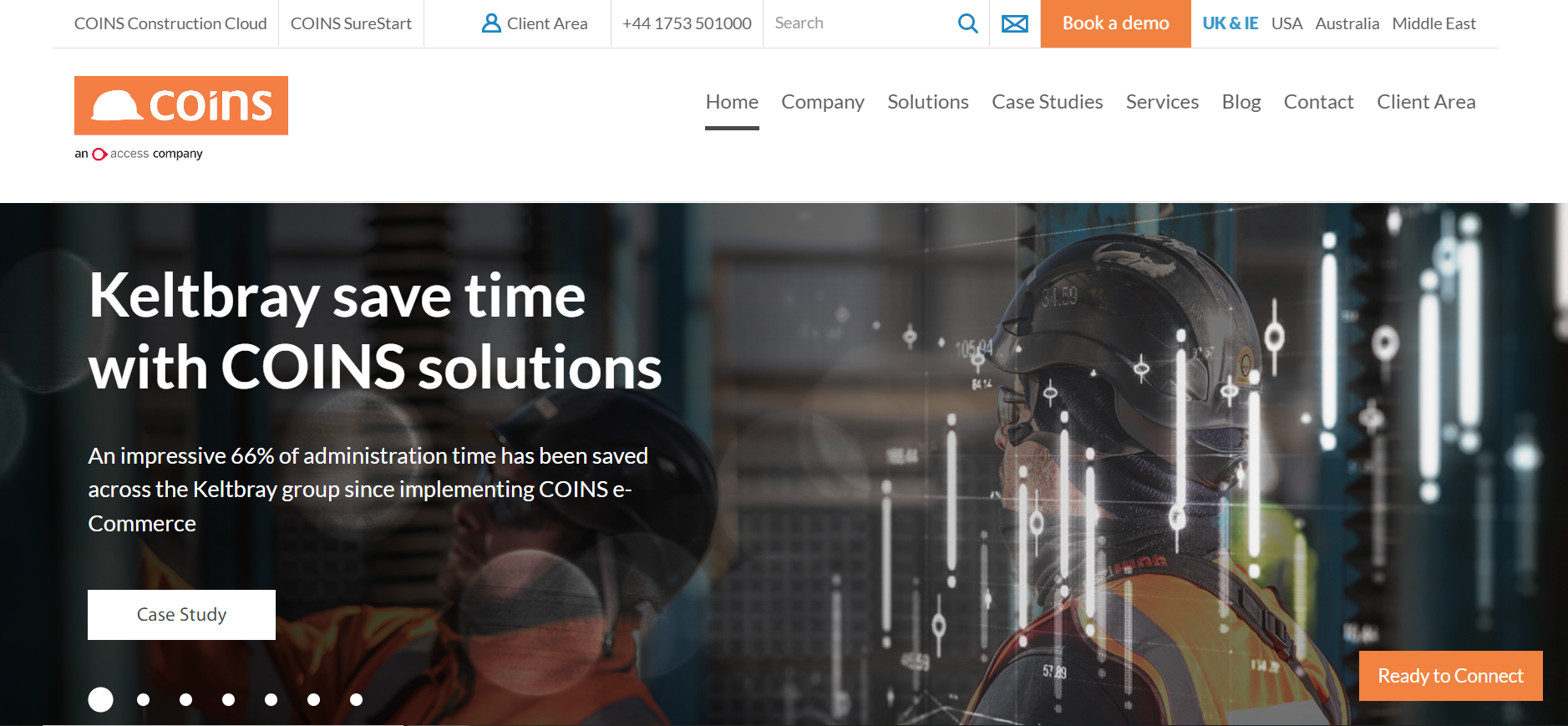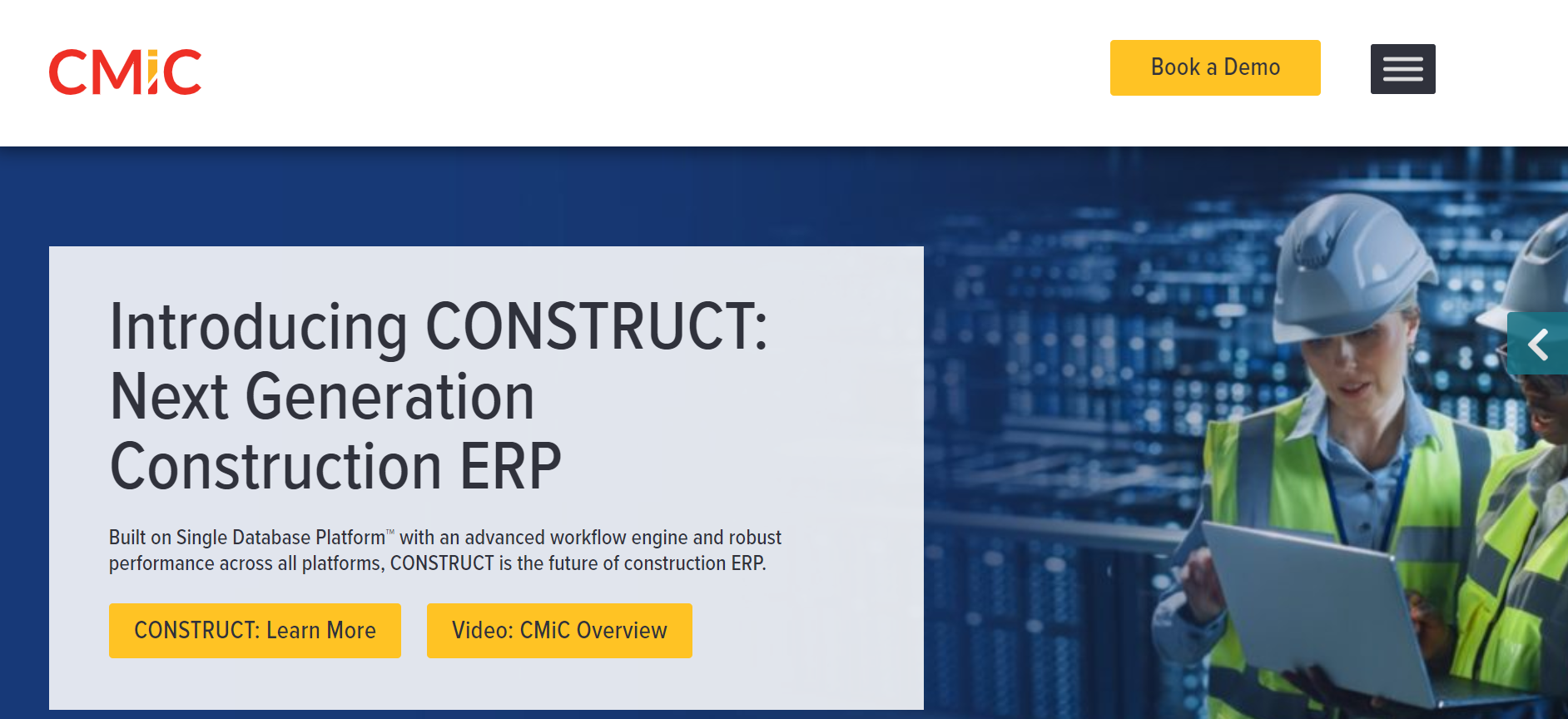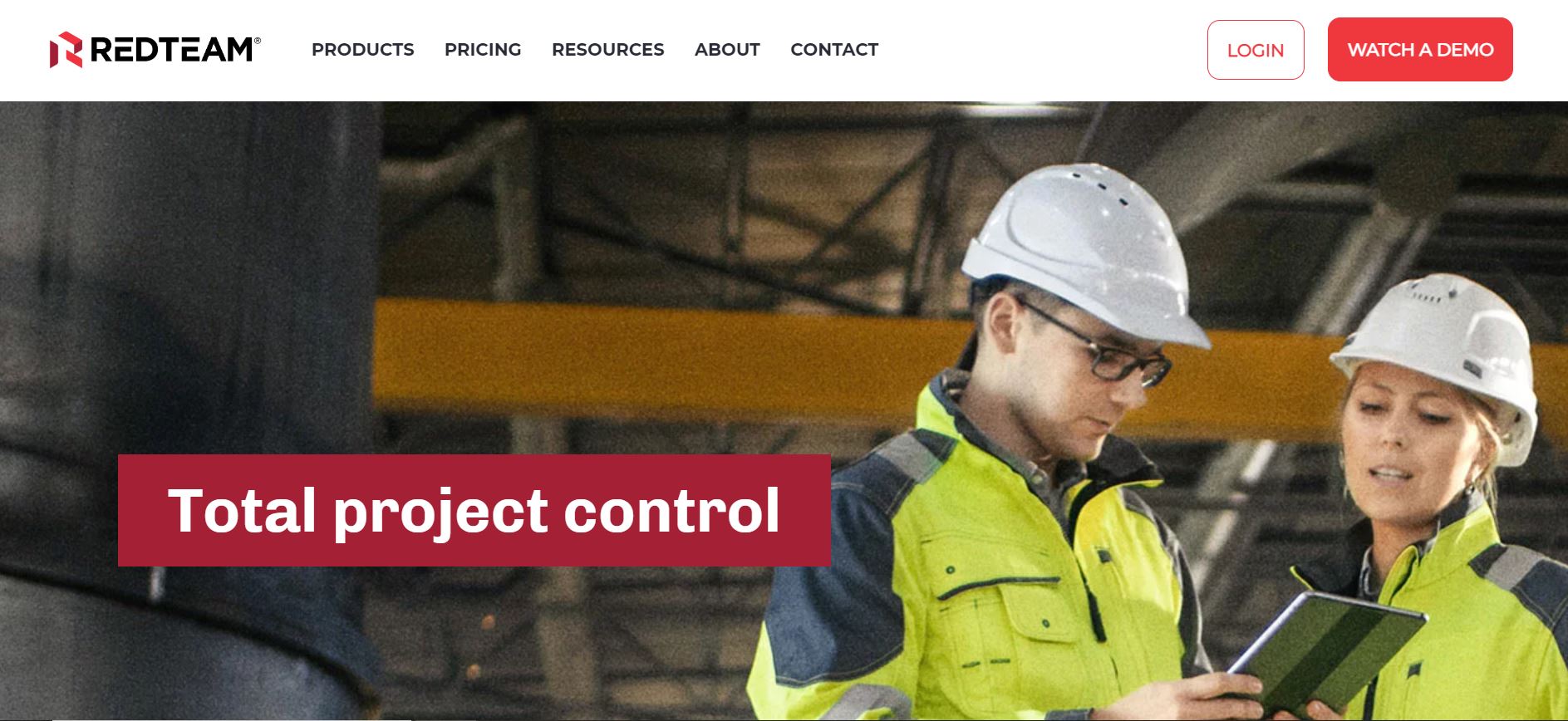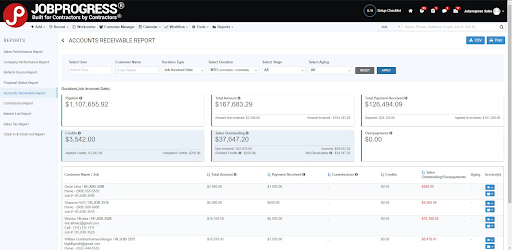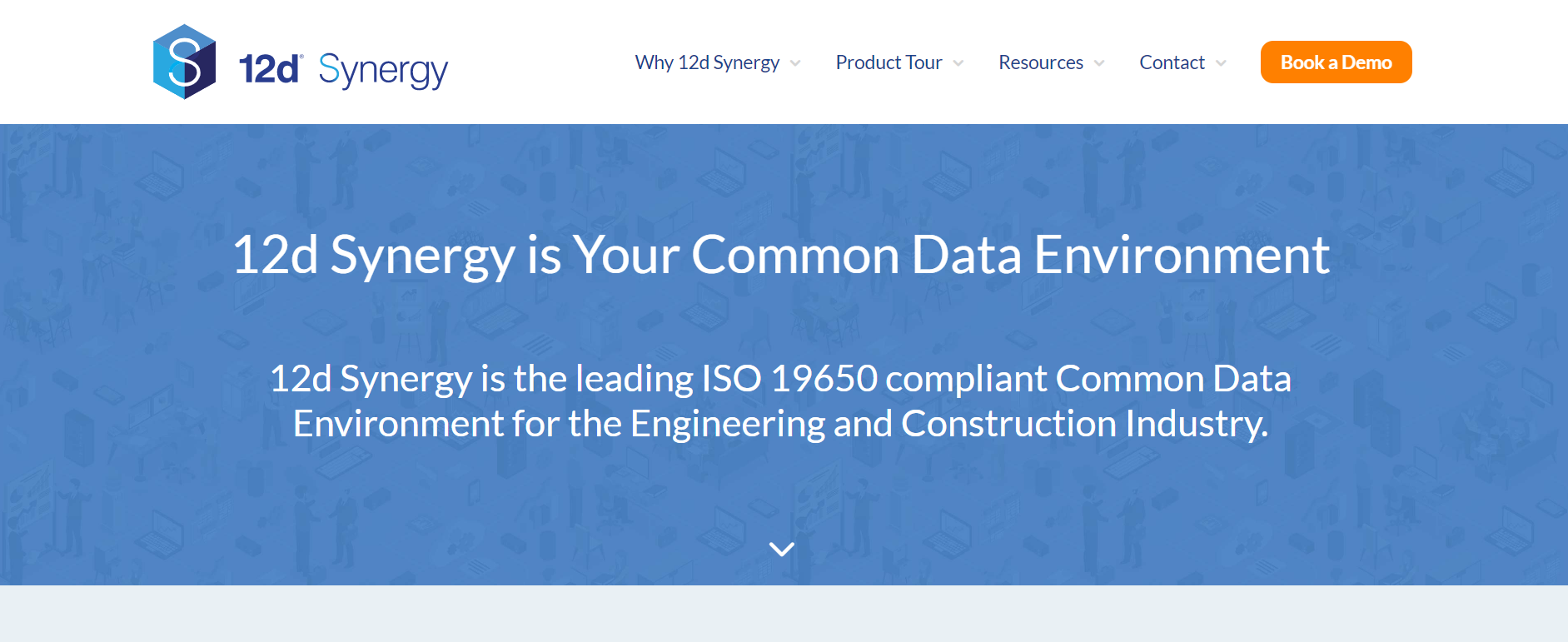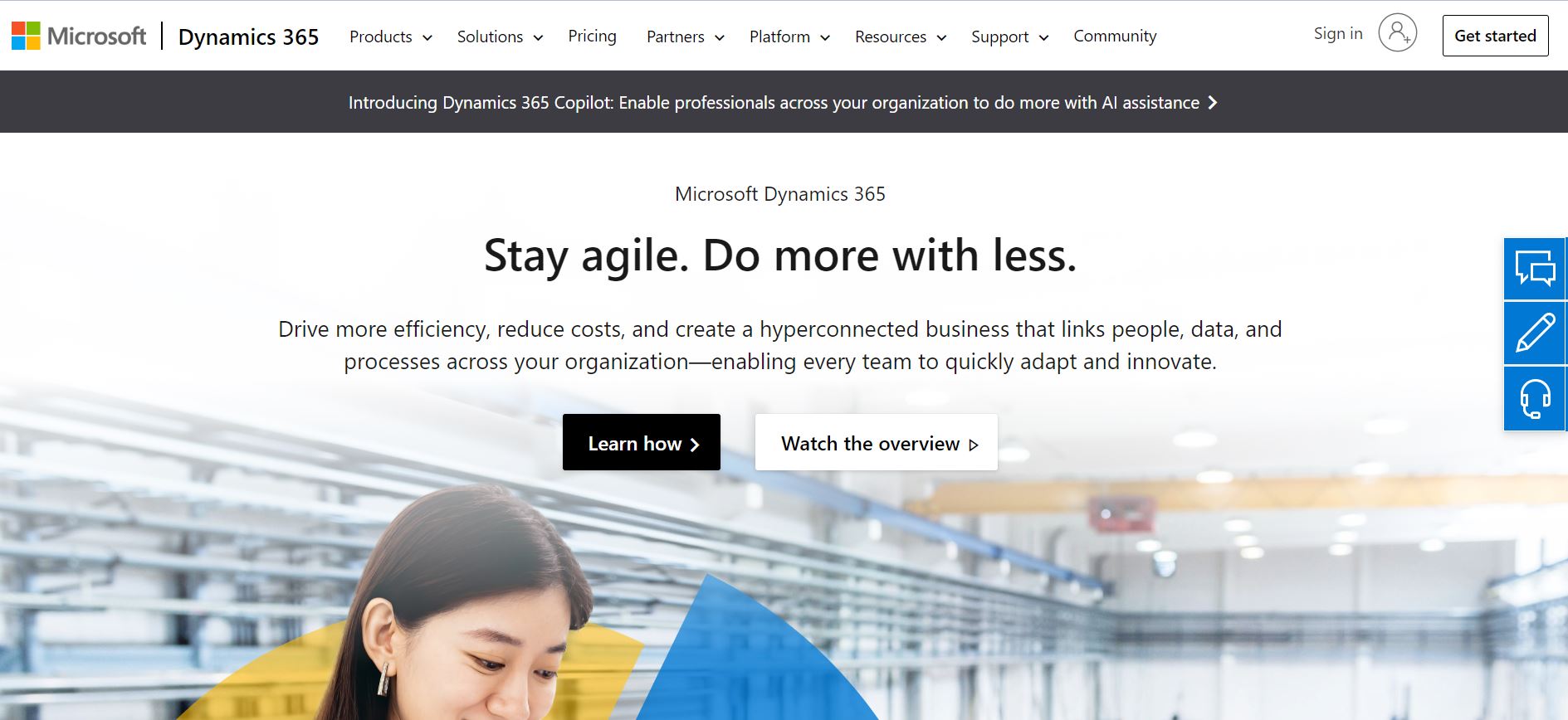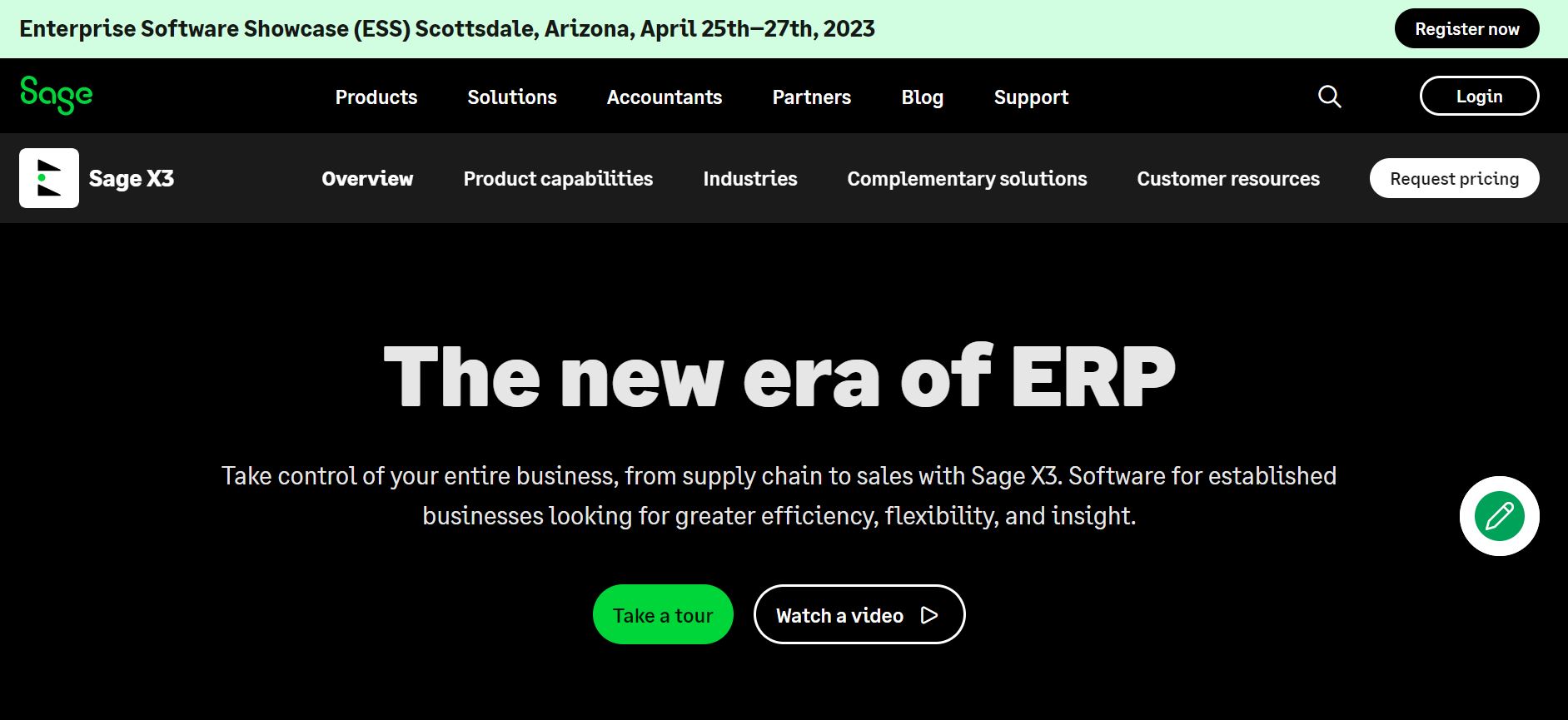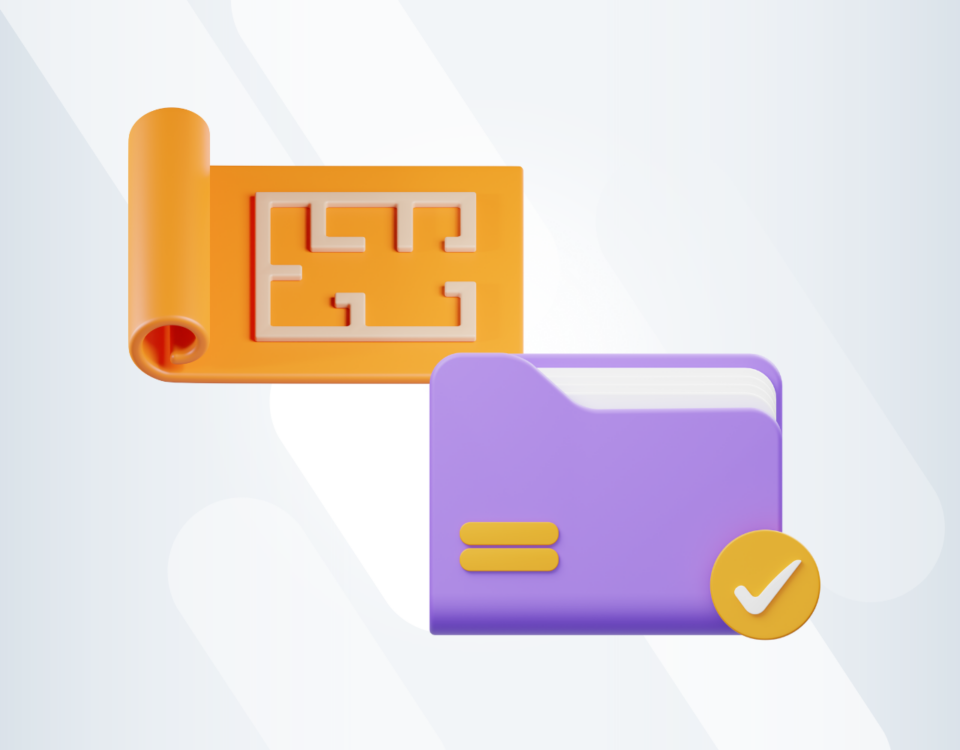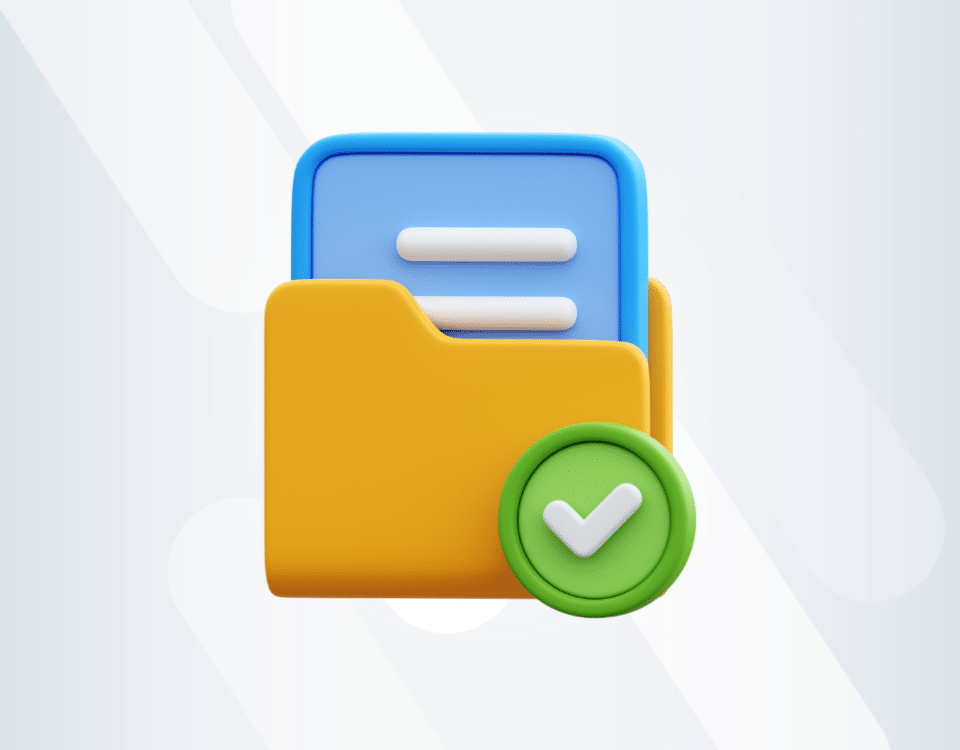Best 14 Construction ERP Tools (2023)
Are you overwhelmed by managing multiple complex projects without actual control over them? We understand that finding a suitable tool takes time and energy.
That's why we created a list of the top 14 ERP construction management software tools in 2023. With proper support, you'll be able to plan, execute and monitor your processes with the desired productivity.
Dive in and discover the best solution to elevate your construction management processes.
Top Construction ERP Tools of 2023
- 1. Archdesk
- 2. Acumatica
- 3. Viewpoint Vista
- 4. Computer Guidance Corporation eCMS
- 5. Spectrum
- 6. COINS Construction Cloud
- 7. UDA ConstructionSuite
- 8. CMiC
- 9. Procore
- 10. RedTeam
- 11. JobProgress
- 12. 12d Synergy
- 13. Microsoft Dynamics
- 14. Sage Business Cloud X3
1. Archdesk

Capterra Rating: 4.6/5
G2 Rating: 4.3/5
Archdesk Pricing

Are you seeking a solid solution to manage your company's resources and processes?
Archdesk might be the one.
Archdesk Overview
Archdesk is a cloud-based construction management software that gathers all the information from your projects and the company's assets in a one single source of truth.
The system provides solutions for project delivery, finances, resource allocation, operations, and document management.
Also, with Archdesk, you can build, monitor, and compare any kind of reports. Thanks to that, you know exactly what's happening in your company.
Archdesk has the biggest customer base in the UK. But, thanks to being fully configurable, Archdesk's solutions also fit other industries, with clients all over Europe, the Middle East, and the US.
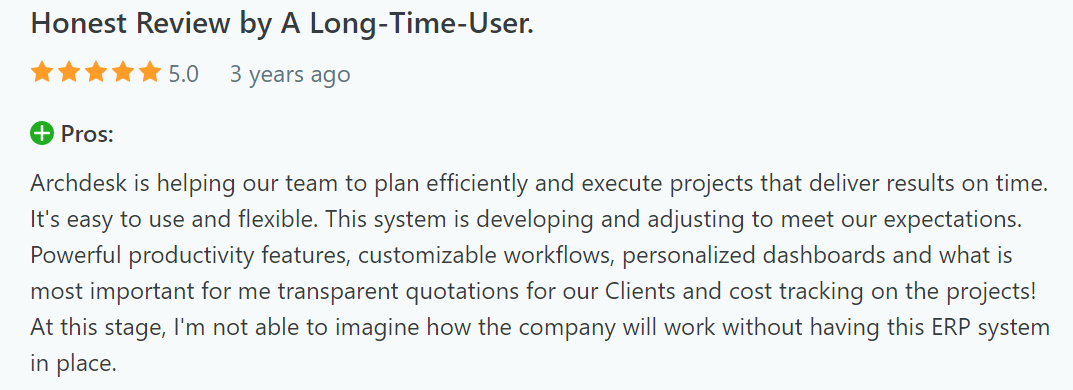
2. Acumatica
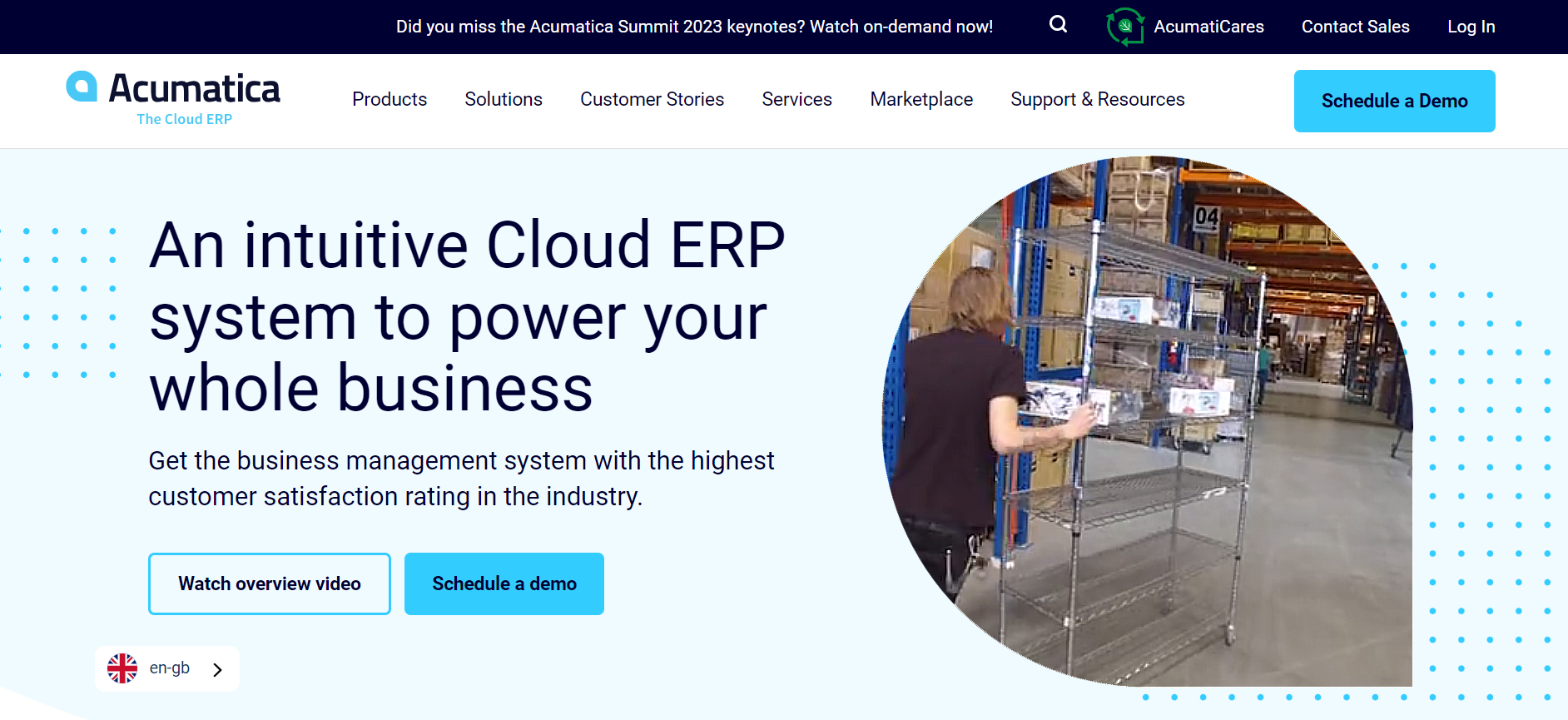
Capterra Rating: 4.5/5
G2 Rating: 4.4/5
Acumatica Pricing
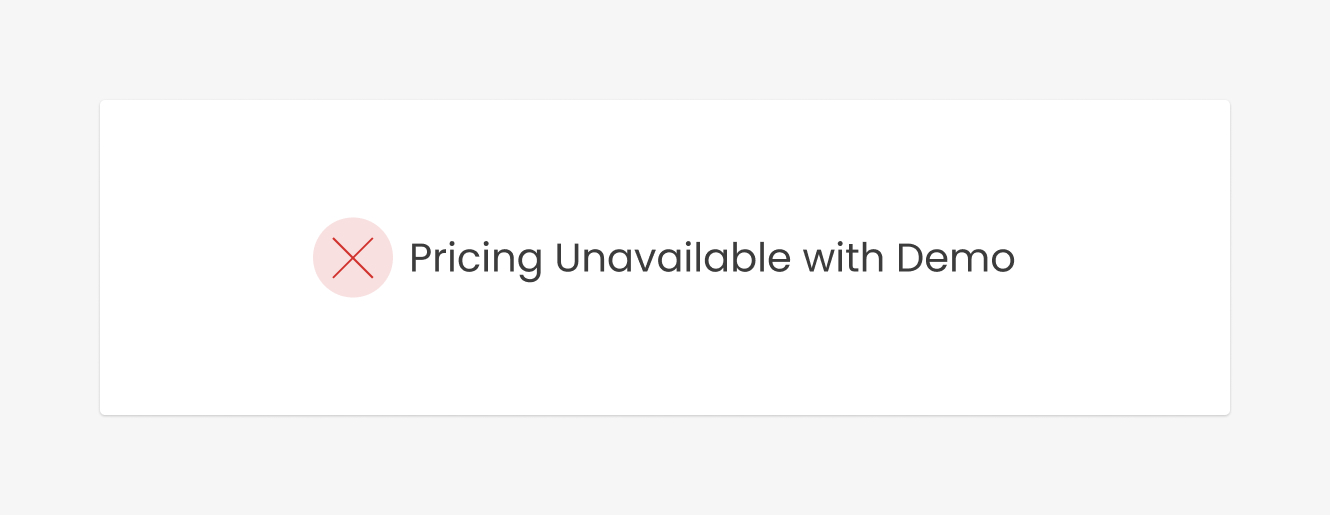
Acumatica Overview
Acumatica is an ERP SaaS solution that offers design and reporting tools.
While construction companies can still use Acumatica ERP, the product was created primary for manufacturing and distribution companies.
Acumatica offers tools for payroll and billing, financial reporting, and inventory management.
It also allows users to keep track of data in real time and customise the product to a company’s needs.
It will be a solid tool also for companies located in the UK. The software was primarily developed in the US, but the company opened its UK office in 2021.
3. Viewpoint Vista
Capterra Rating: 3.9/5
G2 Rating: 3.9/5
Viewpoint Pricing

ViewPoint Vista Overview
Vista by Viewpoint is another good enterprise resource planning solution for construction companies.
It offers tools like accounting, project management and human resource management, which help synchronise all moving parts of a construction business.
Vista deeply integrates with accounting and project management, offering contractors valuable insights into revenue and cost management. Thanks to that it helps keeping projects in budget and avoiding cost overruns.
Viewpoint Vista has tools adapted to the UK construction industry, with over 100,000 users in the UK.
4. Computer Guidance Corporation eCMS
Capterra Rating: 4.7/5
G2 Rating: 4.9/5
Computer Guidance Corporation eCMS Pricing

Computer Guidance Corporation eCMS Overview
Computer Guidance Corporation (CGC) offers a cloud-based ERP solution for US-based commercial contractors called eCMS.
The tool includes various solutions to help contractors of all sizes track and manage their finance and operations from a single system.
Also, users get access to features like content management, payroll, reporting, and communication tools.
eCMS allows software customisation to a large extent, which may be overwhelming for less tech-savvy users.
Also, it’s not 100% certain if the software can support all requirements of the UK construction industry. The company is US-based, but there are positive reviews from UK users, which might indicate only some minor differences.
5. Spectrum
Capterra Rating: 4.0/5
G2 Rating: 4.2/5
Spectrum Pricing

Spectrum Overview
Spectrum is another enterprise resource planning tool from Viewpoint.
It offers a strong lineup of solutions for construction companies, including project management, equipment & materials allocation, HT, accounting, and reporting.
The software solution is available on the web or as a mobile app, so the business information is always available wherever users are.
Spectrum also offers a Project Management Plan Room. With it, users can send and receive documents, communicate with the team, and create an audit trail for each project.
Spectrum will be a solid option for UK businesses as the system offers solutions adapted to the UK construction industry needs.
6. COINS Construction Cloud
Capterra Rating: 4.4/5
G2 Rating: 3.6/5
COINS Pricing

COINS Overview
COINS is an all-in-one ERP system that helps commercial and engineering contractors manage the complete project lifecycle.
Customers can use predictive analytics, supply chain, and contractor management tools.
The system enables the team to share, comment, upload, and access any project document, accelerating communication.
COINS also offers the Mobile Technician feature. It allows technicians to take photos and add annotations to highlight problems with equipment.
COINS provides solutions globally and is present in UK & Ireland markets.
7. UDA ConstructionSuite
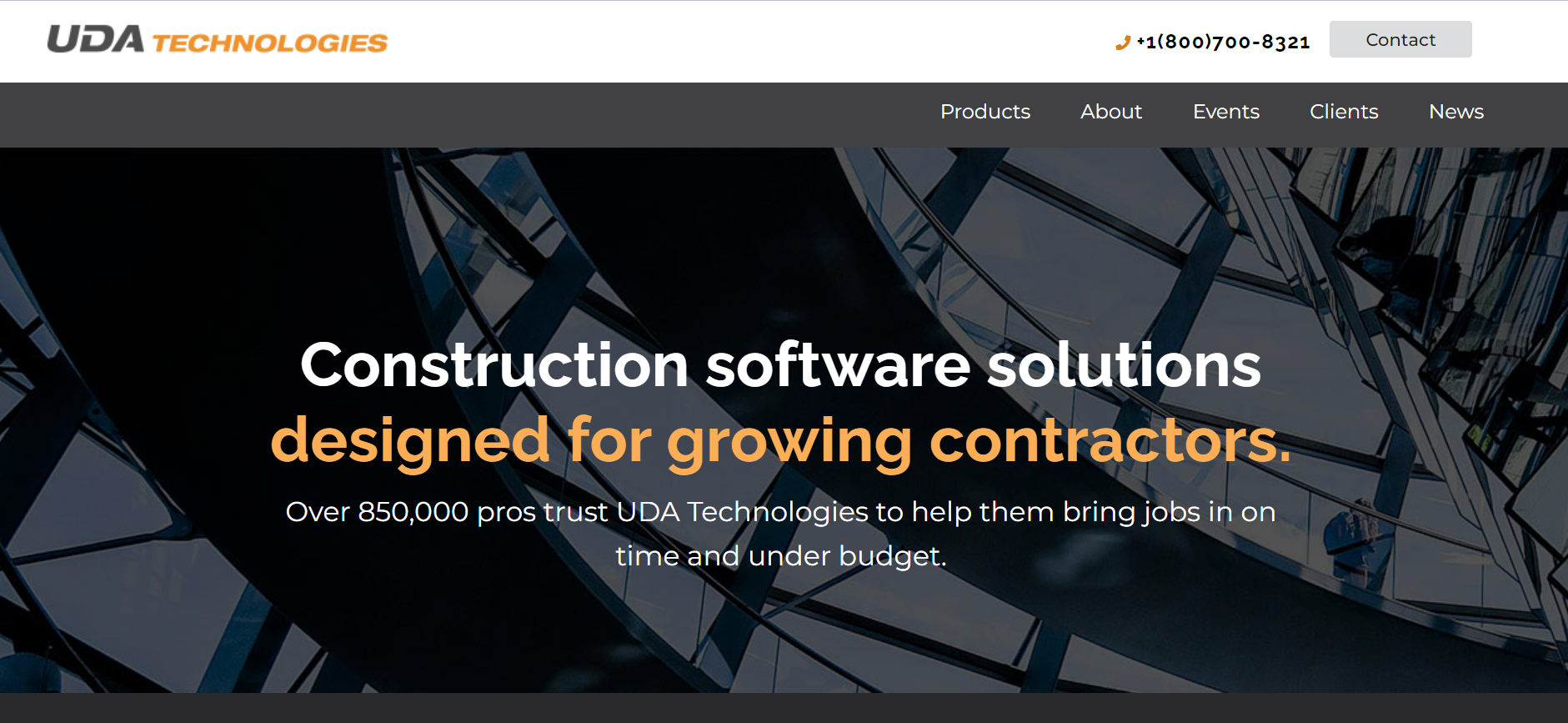
Capterra Rating: 4.4/5
G2 Rating: 2.9/5
UDA ConstructionSuite Pricing

UDA Construction Suite Overview
ConstructionSuite from UDA is an enterprise resource planning solution for general contractors, residential builders, and subcontractors.
It combines the capabilities of ConstructionOnline technology and ConstructionNet CRM, providing complete control over your construction business.
The system offers industry-specific tools, including templates for providing estimates, bi-directional QuickBooks integration, RSMeans cost data, and change order management.
The users rate customer support very positively. However, it’s important to highlight that the system doesn’t have tools customised to the UK construction industry and is available mainly in the US.
8. CMiC
Capterra Rating: 4.1/5
G2 Rating: 3.3/5
CMiC Pricing

CMiC Overview
Another software that can support ERP management in an organisation is CMiC.
CMiC offers a full suite of tools for various functions, including enterprise planning, accounting, and asset management, which helps a wide range of companies in the AEC industry.
Customers can choose a deployment model that best matches their company’s needs. Available options are: on-premise, platform-as-a-service, and multi-tenant cloud environments.
The users positively evaluate the financial functions of the system. However, it’s important to highlight that CMiC might not be fully updated to the UK construction industry requirements. The system is available in the UK but developed in the US, so some solutions might not be optimal.
9. Procore
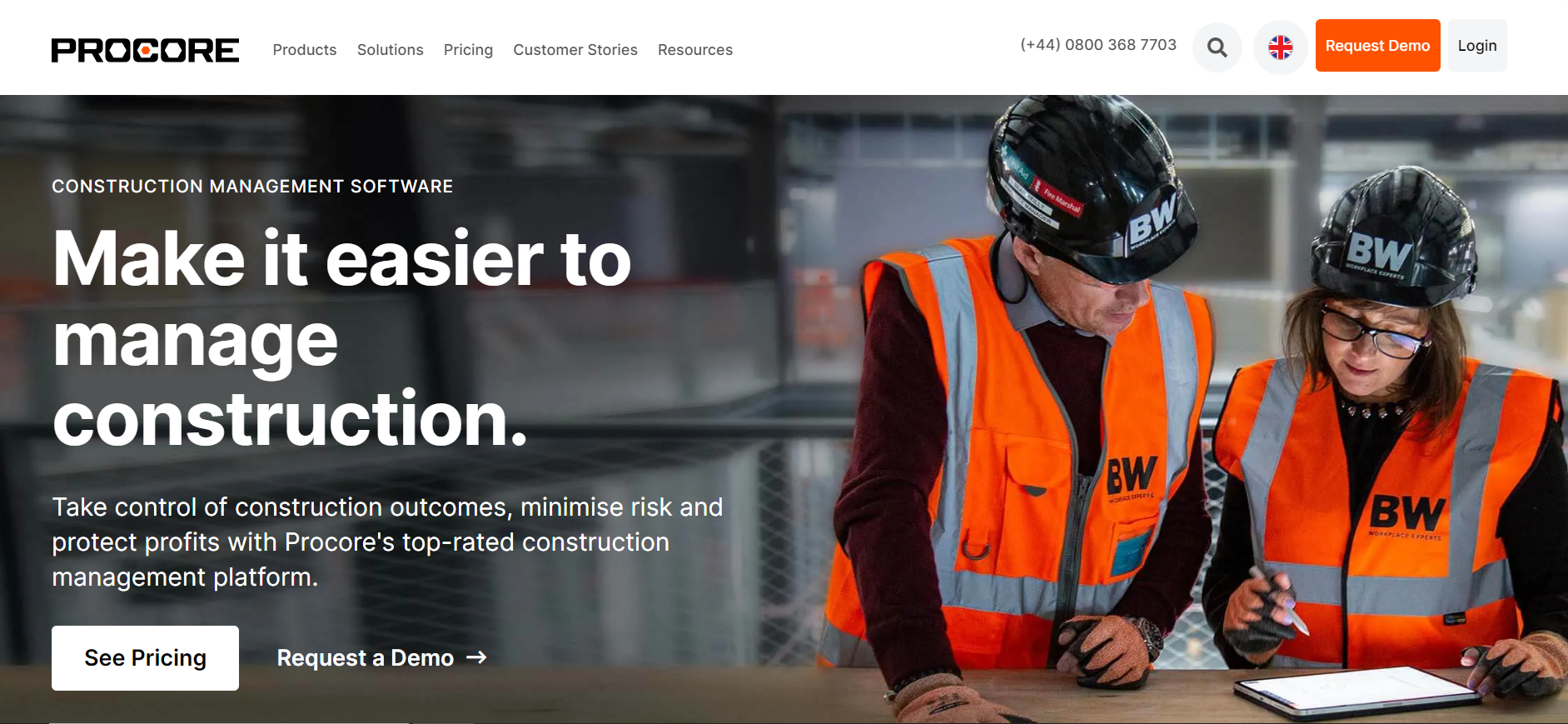
Capterra Rating: 4.5/5
G2 Rating: 4.5/5
Procore Pricing
Procore asks you for some information and promises a call back with a quote

Procore Overview
Another possibility is to manage construction processes in Procore.
Procore connects project contributors to various tools tailor-made for the construction industry.
The tool is cloud-based and allows live collaboration on projects. So all stakeholders and team members can access a project’s details and documents any time they need.
Procore works well for the UK construction industry, but the product is US-based, so the solutions might be more suitable for the US market.
Overall, Procore is a pretty solid option for business owners, general and specialty contractors.
Here is a list of the top 13 alternatives to Procore in 2023.
10. RedTeam
Capterra Rating: 4.2/5
G2 Rating: 4.5/5
RedTeam Pricing
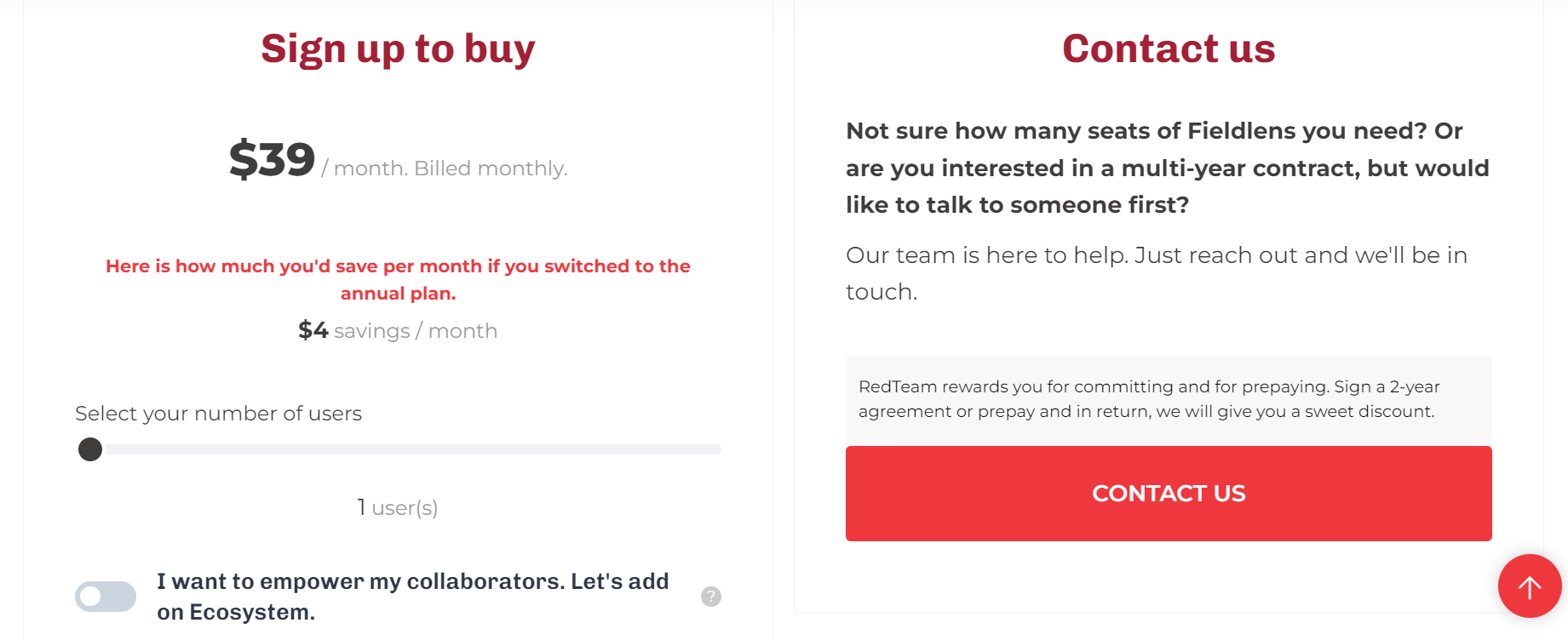 RedTeam Overview
RedTeam Overview
RedTeam is a cloud-based project management solution with ERP capabilities best suited for midsize general commercial contractors.
The tool is accessible from any device and has native apps for Android and iOS devices.
RedTeam supports the estimating process, solicits bids, and integrates financials with QuickBooks Online. It also has useful features like dragging and dropping planes into the RedTeam Optical Character Recognition tool.
The users appreciate the most the user-friendly interface, which streamlines all the management processes.
However, the company operates mainly in the US and Canada, so the software is not fully adapted to the UK construction industry's needs.
11. JobProgress
Capterra Rating: 4.4/5
G2 Rating: 3.8/5
JobProgress Pricing

JobProgress Overview
Another construction ERP management software available on the market is Job Progress.
JobProgress is a business productivity platform for home improvement contractors. While primarily focused on productivity, JobProgress has several features that make it a decent ERP and CRM tool.
Companies can use JobProgress for estimating, invoicing, organising, communicating, and managing clients and projects.
It also helps re-engineer workflows, providing stakeholders complete visibility over a project’s progress.
However, the system is US-based, so it doesn’t fully support the needs of UK construction companies.
12. 12d Synergy
Capterra Rating: 4.3/5
G2 Rating: 5.0/5
12d Synergy Pricing

12d Synergy Overview
Unlike other tools on the list, 12d Synergy primarily focuses on helping AES professionals spend less time managing data. For example, staff members can use 12d Synergy to sort documents based on naming rules to make searching easier.
Among the tools offered by 12d Synergy’s features are contact management, document storage, and customizable job templates.
The system also offers a variety of data formats and the possibility to roll back to previous versions of a file during offline work.
The system doesn’t give everything what an ERP system for the UK construction industry should. 12d Synergy was developed in Australia and is used primarily in Australia and New Zealand.
13. Microsoft Dynamics
Capterra Rating: 4.3/5
G2 Rating: 3.8/5
Microsoft Dynamics Pricing
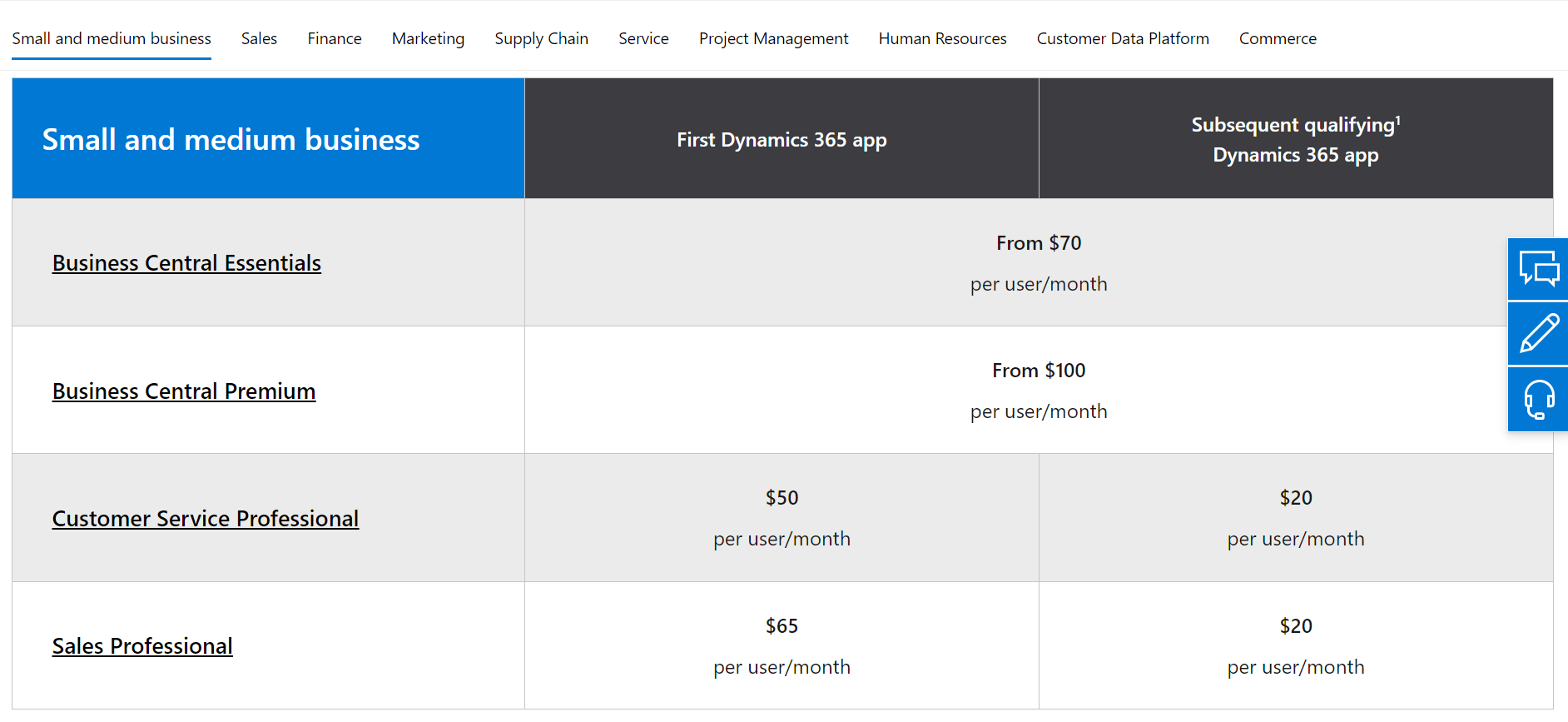
Microsoft Dynamics 365 Overview
Microsoft Dynamics is an ERP tool for all industries, including construction. It centralises information about workflows and projects in a single platform for efficient decision-making.
Interestingly, Microsoft Dynamics also offers Artificial Intelligence (AI), which helps make smarter decisions and assists in scenario planning.
Among the tools offered are Visual Analytics, Asset Lifecycle Analyses, Compliance, and Document Management.
Microsoft Dynamics supports UK market requirements. However, it’s not a tool fully customised to the construction industry's needs.
14. Sage Business Cloud X3
Capterra Rating: 4.2/5
G2 Rating: 3.9/5
Sage Business Cloud X3 Pricing
Sage Business Cloud X3 asks you for some information and promises a call back with a quote

Sage Business Cloud X3 Overview
Sage Business Cloud X3 (different from Sage Intacct) is an ERP tool with multiple capabilities, including financial management, business intelligence, inventory, sales, distribution, and customer service.
The system can be used on the web, deployed on-premise, or in Sage-managed or partner-provisioned AWS cloud. It can be a good fit for small and medium companies benefiting from a user-friendly interface and a flat learning curve.
Sage Business Cloud X3 was created by a British provider, so its solutions are adapted to the UK market. However, it’s not a tool dedicated to construction.
Frequently Asked Questions
What is ERP in Construction?
ERP (enterprise resource planning) software supports managing daily business activities, including project management, supply chain organisation, accounting, and sales &marketing activities. The ERP solution also helps plan, predict, and report on the company's financial activities and desired level of performance.
What are the 5 components of ERP?
The five main components of an enterprise resource planning system are:
- Financial Management- dealing with the company's financial assets and all financial transactions to accomplish the long-term goals.
- Human Resource- handling all processes related to employees' matters like payments, promotions, performance reports, training, and leaves.
- Customer Relationship Management- addressing customers and performing tasks using real-time information and data analysis gathered from the system.
- Supply Chain Management- monitoring the whole process of materials conversion into the final product and its distribution to customers.
- Business Intelligence- creating data-driven business insights that allow managers to make faster and better decisions on the company level.
Where is ERP mostly used?
ERP is mainly used in larger organisations that want to manage their supply chain and company processes with a centralised, integrated tool. It helps them keep track of changes and supports daily activities. ERP software benefits most manufacturing and distribution industries.
Is Excel an ERP?
Excel can't be considered an ERP system. It doesn't provide integration between major ERP components (finance, CRM, supply chain, HR, and logistics). Also, it doesn't offer complete visibility over the company's situation, which is a crucial feature for ERP systems.
Which is best ERP or CRM?
It's hard to determine, as both systems serve slightly different purposes. ERP supports the entire business process to boost efficiency at the company level. That's why you'll find solutions for production, distribution, finance, HR, or supply chain. CRM, on the contrary, supports the client management and customer experience lifecycle.
Can US Tech do the Same as UK Construction ERP Software?
Not always. The US and the UK have different financial regulations with distinct tax levels, processes, and requirements. Because of that, US technology might not cover all needs of UK businesses.
The exception is a configurable system that can adapt its structure to clients’ requirements.
Non-negotiable features of a construction ERP software
There are some features that your future system must have to serve you well. However, consider factors like your company's size and existing technology stack before choosing.
1.Customised for the construction industry
Many ERP systems available on the market provide general, complex solutions that are supposed to match different industries' needs.
In contrast, an ERP for your company should be customised to the requirements and specific needs of the construction industry. It means operating in proper construction terminology and providing tools that match the construction processes from early design to final delivery.
2.Detailed project-focus perspective
To manage your processes properly, you need to track the company's financials and gain crucial insights about your projects. How much profit you're making, what are the costs, and are you still on a budget?- the answers should be available at your fingertips.
That’s why choosing a system that provides this information is so important. It should be able to support you in project delivery, document management, or scheduling to unlock your company's full potential.
3.High-level reporting on the project and the company level
Make the right decisions for your business thanks to a clear overview of what's happening in your company.
With proper ERP software, you should be able to build any report you need and compare it with the selected period in time. Also, the system will show you an updated, real-time situation in your company anytime you need it.
4.Quick and efficient Implementation Process
Implementation of a new system always takes time and a lot of effort. Choose a construction system that makes the process as convenient as possible.
Also, check if there’s a chance to adjust the pace of changes to your company's needs. Maybe you don’t need to implement all solutions at once, but instead, unlock the software's full potential as your business grows.
Get the Best Construction ERP Software on the Market
Finding the right ERP system is mission-critical for maximising profitability and monitoring where your resources are spent.
While the market is crowded with ERP tools, most aren’t tailor-made for UK-based construction businesses. You need an ERP that focuses on construction management, so you get access to just the right feature set.
The right tool makes resource planning easy. Want to see how easy resource planning can become for your construction business?
You might also like
February 29, 2024 • 7 min read
Utilizing the human-first approach to construction projects to drive higher results.
July 3, 2023 • 6 min read
8 Best Construction Drawing Management Software (2023): A Comprehensive Guide
Find all the information you need about the construction drawing management software tools available on ...June 14, 2023 • 6 min read
The 11 Best PlanGrid Alternatives (2023)
Looking for a great alternative to PlanGrid software? Check out the 11 best construction software tools ...June 14, 2023 • 4 min read
How to win at CIS 340 and make taxes a breeze
CIS 340 is a legal obligation for contractors. But getting it right isn’t straightforward. Want ...

